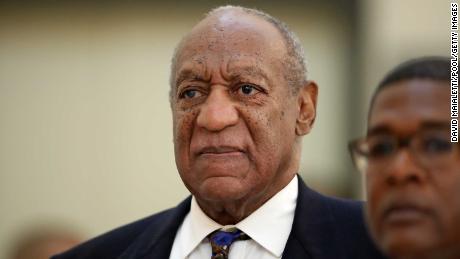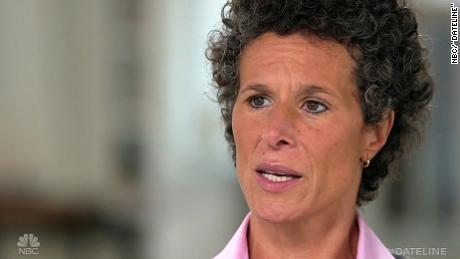Story highlights
- Two jurors gave conflicting accounts of their deliberations
- Jurors' names were released to the public Wednesday after mistrial
(CNN)Two jurors in Bill Cosby's assault trial offered differing accounts of their deadlocked deliberations that underscore how differently they may have viewed the case.
One juror told ABC News on Wednesday that ten of the 12 jurors voted to convict Cosby on two counts of aggravated indecent assault, but two people on the panel continued to hold out, leading to a deadlocked jury and a mistrial.
However, a different juror told CNN affiliate WPXI that jurors were in a "true deadlock" and that votes were generally split along 7-5 or 5-7 votes for most of the deliberations.
Both jurors spoke on the condition of anonymity because jurors were told not to comment on the proceedings inside the jury room.
The jury room insights came less than a week after the trial judge declared a mistrial in Cosby's case, as jurors reported being hopelessly deadlocked over more than 50 hours of deliberations. The judge presiding over Cosby's trial released the names of the 12 jurors and six alternates in the case on Wednesday.
Cosby faced three counts of aggravated indecent assault. Prosecutors say Cosby drugged and sexually assaulted Andrea Constand, the former director of operations for Temple University's women's basketball team, at his home near Philadelphia in January 2004.
According to the juror who spoke to ABC News, the vote was 10-2 to convict him on charges that he digitally penetrated Constand without her consent, and 10-2 that he gave her drugs that substantially impaired her ability to resist. The vote was 11-1 to acquit Cosby on a charge that he digitally penetrated Constand while she was unconscious or unaware, the juror said.
The juror who spoke to WPXI said that the 10-2 split happened at one point but that jurors changed their votes before a tally could be sent to the judge.
In most criminal cases, verdicts must be unanimous.
CNN has tried to reach most of the jurors but has not gotten responses from them. On Thursday, the door of one juror's home had a note saying, "NO interviews. Please do not ring bell."
The juror who spoke with ABC News said tensions ran high in the too-small jury room.
"They were just literally walking in circles where they were standing because they were losing their minds. People would just start crying out of nowhere," the juror said. We wouldn't even be talking about [the case], and people would just start crying."
At one point, a male juror even punched a concrete wall, possibly breaking his pinky knuckle, the juror said.
Jurors' names released
After requests from media outlets, including CNN, Judge Steven O'Neill decided to release the names, while keeping the jury deliberations confidential, according to a court document released Wednesday.
The document states that a disclosure of anything said or done during deliberations "would have a chilling effect upon future jurors in this case and their ability to deliberate freely."
Prosecutors have said they will retry the case.
The court emphasized that jurors are not allowed to disclose the opinions and thoughts of their fellow jurors as well as any arguments or comments made, or votes cast, by fellow jurors during deliberations.
The names were released to the public after the court contacted the jurors and gave them instructions.
The jurors for the trial were selected in Allegheny County, Pennsylvania, and taken to Montgomery County, near Philadelphia, where they were sequestered for the 12 days of trial and deliberations.
According to the post-trial instructions, the judge acknowledged the freedom of the press, stating "there is no law forbidding (reporters) to question discharged jurors," and adding that a juror can decline to be interviewed at any time.
The document said the court had "significant concerns" over publishing the names during the trial when attempts to interview jurors' families and friends, who would likely have contacted the jurors, would have caused "consternation and distraction from their sworn duty."
The prosecution filed a memorandum opposing the release of the names, saying it "could have a chilling effect on future jurors and could impair both parties' right to a fair and impartial trial." The defense team later joined that request.
After balancing the rights of all parties, the court decided to release the names, the document said.























